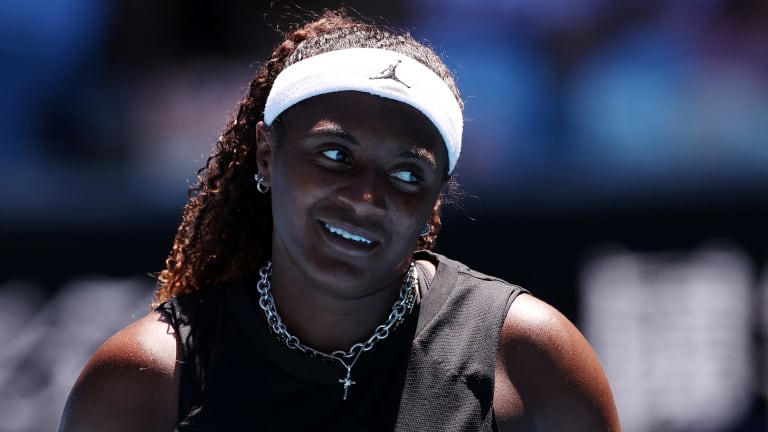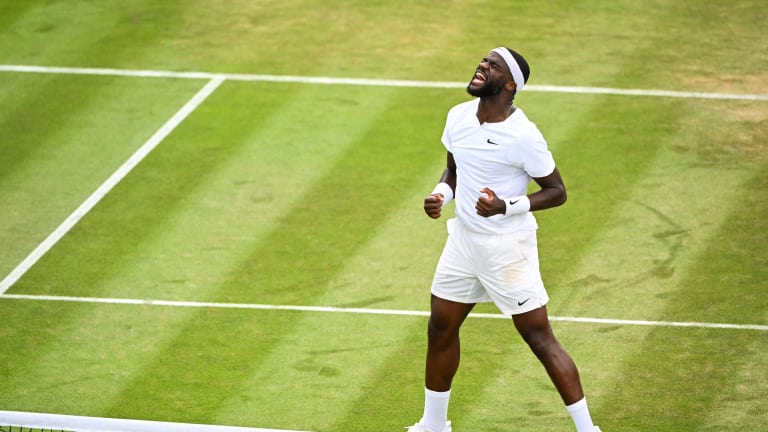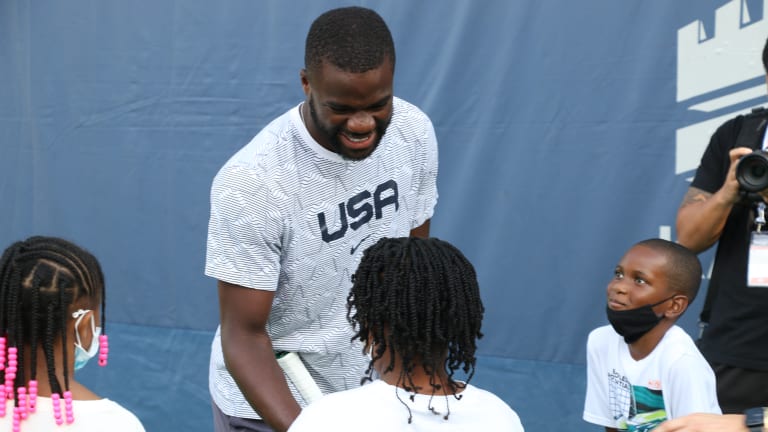Tennis.com Interview
How Frances Tiafoe's pure love for the DMV is creating a domino effect throughout local tennis circles
By Aug 01, 2022Tennis.com Interview
Jan-Lennard Struff sees Munich title defense bid as 'perfect opportunity' to turn 2025 around
By Apr 14, 2025Tennis.com Interview
Lorenzo Musetti manifested his 'special' week in Monte Carlo with first Masters 1000 final
By Apr 12, 2025Tennis.com Interview
No logic, just a feeling: Andrey Rublev "always knew" he wanted to work with Marat Safin
By Apr 07, 2025Tennis.com Interview
Brad Gilbert, Patrick McEnroe weigh in on U.S. men's tennis evolution
By Apr 05, 2025Tennis.com Interview
Patrick McEnroe decries Jannik Sinner suspension, tags Joao Fonseca as future star
By Apr 04, 2025Tennis.com Interview
On chicken farm, Danielle Collins embraces “crunchy granola lifestyle”
By Apr 03, 2025Tennis.com Interview
Feeling like a teenager, Alizé Cornet, 35, makes triumphant comeback from retirement
By Apr 02, 2025Tennis.com Interview
Danielle Collins launches iconic richsport merch collab
By Mar 07, 2025Tennis.com Interview
Zizou Bergs: From TikTok to Top 50 in Indian Wells?
By Mar 06, 2025Tennis.com Interview
How Frances Tiafoe's pure love for the DMV is creating a domino effect throughout local tennis circles
"He has always been the guy I look up to and a constant inspiration in my life," says Hailey Baptiste—who also benefited from a competitive pathway made possible by the NJTL network.
Published Aug 01, 2022
Advertising
Advertising

After qualifying at this year's Australian Open, Baptiste scored her first main-draw win in Melbourne by rallying past Caroline Garcia.
© AFP via Getty Images
Advertising
Advertising
Advertising

Tiafoe achieved his best Wimbledon showing in July when he advanced to the round of 16.
© AFP via Getty Images
Advertising

Tiafoe headlined an early-morning clinic for kids from the Washington Tennis & Education Foundation on Monday.
© USTA Mid-Atlantic